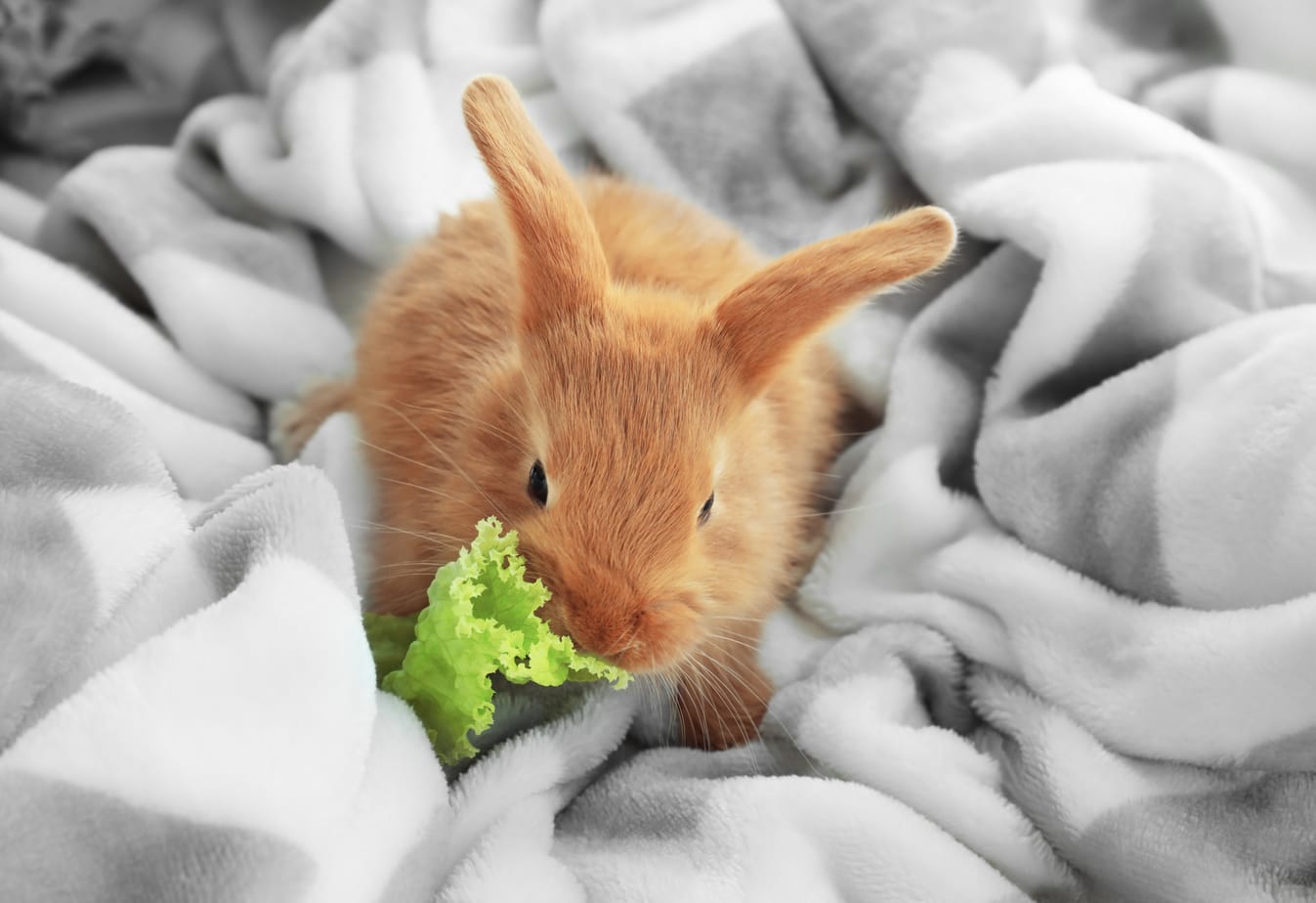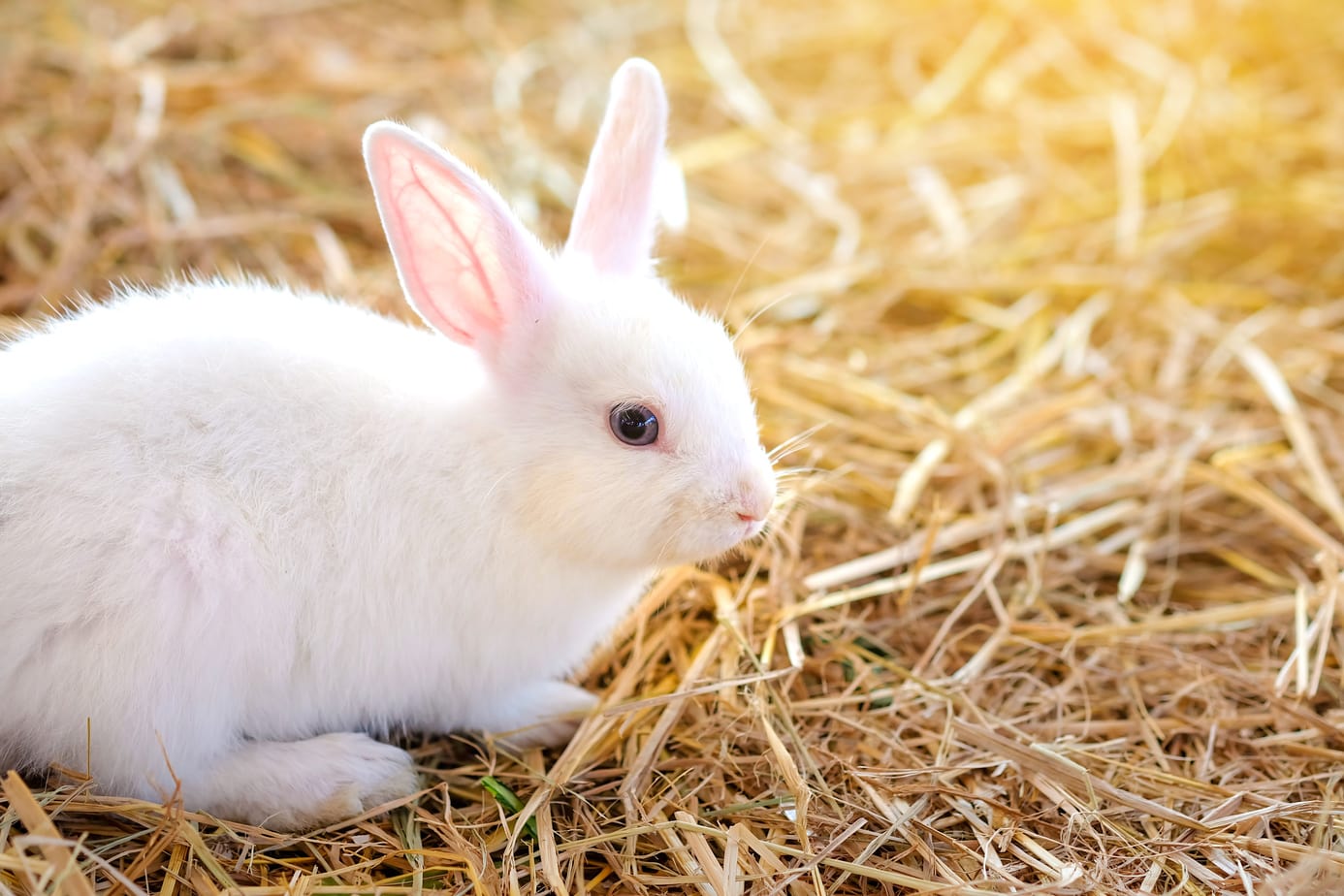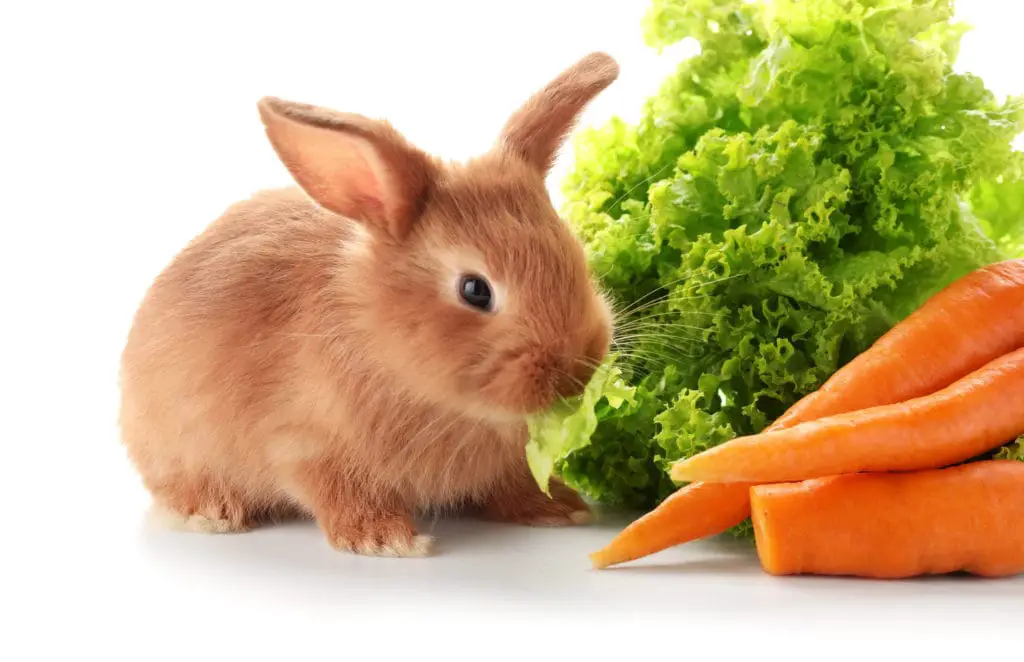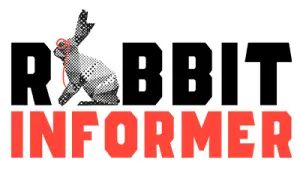
Rabbits love eating leafy greens and grass while living in the wild. Domestic rabbits love these foods as well, but should rabbits eat a lot of lettuce?
If a rabbit eats too much lettuce, they can become ill, especially if they eat the wrong type of lettuce. Romaine lettuce and lamb’s lettuce are the best kind of lettuce for rabbits. The darker the leaves, the better it will be for them.
In this article we will further discuss the topic of lettuce when it comes to feeding your rabbit. Generally, lettuce is good for them but too much of anything is usually never good.
Healthy Lettuce for Rabbits
Romaine lettuce and lamb’s lettuce are safe and healthy for rabbits. The darker the leaves, the healthier it will be. Butterhead lettuce is okay, but it’s high in acids. Do not feed a rabbit iceberg lettuce as it contains excessive amounts of lactucarium, which is toxic for rabbits in high doses.
Avoid giving your rabbit iceberg lettuce because it has a high-water content. It also contains lactucarium, which causes your rabbit to have diarrhea. The darker the leaf of the lettuce is, the better it is for your rabbit companion. Lettuce should be a part of your rabbit’s diet, but it should not be the only thing that your rabbit is eating.
Hay is very good for them and will help them a lot in the long run. If you do feed your rabbit lettuce, start by feeding them very small amounts. This will give their digestive system time to get used to the new food. You should also introduce other fresh foods into your rabbit’s diet, and avoid only feeding them lettuce and hay.
Is Hay Better for My Rabbit?

Hay is very good for your rabbit. Your rabbit can never eat too much hay. Hay should be at least 80-90% of your rabbit’s diet. Source
It also helps file their teeth down. Their teeth grow very fast, and some of their teeth never stop growing, so they must eat something that controls the growth. If their teeth don’t get filed down naturally by food, then they will have to be taken to the vet regularly to be filed down to a safe length, and that can become very expensive, and can easily be avoided.
If you use straw for your rabbit’s bedding, put a layer of hay over the top so they can graze on it. While straw will not hurt them if they eat it in small amounts, hay has more nutritional value and will be better for them in the long run. However, make sure that the hay that they are eating is clean and dry. Wet hay and straw can mold easily, and moldy hay will make your rabbit very sick.
You should feed your rabbit grass hays like meadow, timothy, or orchard hay. If your rabbit is more than 6 months old, avoid feeding them alfalfa hay.
Should I Allow My Rabbit to Graze?
Rabbits are natural grazers, so yes, it is healthy for them to graze. They do so constantly in the wild. They should graze on hay and grass, and they might eat straw if that is what their bedding is made of, but grazing is actually healthy for them. When they eat hay, they are getting vital protein and nutrients that are essential to keeping them healthy and happy.
However, rabbits will overeat if they are given the chance. Only allow them to graze on high-nutrient foods, and never leave fruit or pellets in their bowl for them to graze on, as this can cause your rabbit to become obese.
For a much more in-depth guide on what types of rabbit pellets to give to your rabbit and the dangers of certain types of pellets, see my article Here’s Why Rabbits Don’t Need Pellets. It’s very important information for any rabbit owner to know.
What Foods Should I Feed My Rabbit?
Your rabbit can eat many foods other than hay, pellets, carrots, and lettuce. Broccoli and cauliflower are good options, but should only be a small part of your rabbit’s diet because they often have higher amounts of starch or sugars than leafy greens.
While rabbits can eat fruit, and fruits make fantastic treats while you are training them, they should not eat them in large amounts regularly. Fruits are very high in sugar, which can cause health issues down the line if they have too much of it too frequently.
Even certain fruit juices can be a great treat for your pet rabbit! You can find out exactly which ones are a great (and safe) treat for your rabbit and which ones it’s critical that you avoid in my article Can Rabbits Drink Fruit Juice? What Owners Must Know.
Avoid feeding your rabbits onions, leeks, and chives, as well as other foods that are in the onion family. Eating these foods can cause blood abnormalities, and cause your rabbit to become very sick.
Can Rabbits Become Territorial Over Food?
Wild rabbits will not become territorial over food because they typically have a very large and expansive food source, but domesticated rabbits can become territorial. The most common cause of a rabbit becoming territorial over food is when they have been fed frequently from a bowl.
You can help stop the aggression that comes from this by moving their bowl to a different part of their cage every day. If the aggressive behavior continues, contact your veterinarian for advice.
If you find your rabbit getting in a fight with other rabbits frequently, figure out the cause, how to stop it, and how to break up a fight safely while it’s occurring here: Five Reasons Pet Rabbits Fight and How to Stop Them.

Can My Rabbit Become Obese?
All animals can become overweight, and rabbits are no exception. Rabbits have very active lifestyles in the wild, and love eating. However, rabbits can become very sick if they become obese. If your rabbit becomes overweight, remove all fruits and pellets from their diet, and add more exercise to their daily routine.
If you need help figuring out if your rabbit is overweight and some simple things you can do to help your rabbit, see my article titled Is Your Rabbit Too Fat? Let’s Find Out!
Rabbits only need to eat twice a day, other than their grazing. Based on the size of your rabbit, you should feed your rabbit only a small amount of commercially produced, high-quality rabbit pellets every day.
The general rule of thumb is to offer your rabbit 25g of pellets per kg of body weight per day, with a maximum of 50g of food.
HELPFUL TIP: Are you having trouble figuring out how big your rabbit should get based on their breed? See the helpful breed chart and more on my page Pet Rabbit Growth Chart: How Big Can It Get.
Health Issues That Can Occur From Over-Eating
Over-eating can cause obesity, but in rabbits, it can also cause digestive problems, which can be deadly for your rabbit. If your rabbit becomes overweight, they can also develop heart problems, tooth decay, urinary tract issues, and Gastrointestinal stasis (GI). All of these issues can cause severe harm to your rabbit if left untreated. If you think that your rabbit has any of these issues, contact your veterinarian.
Related Helpful Information
- Should Rabbits Have Unlimited Hay? – There are a lot of health benefits to providing your rabbit with plenty of hay. But how much of a good thing… is bad? This article will answer that question along with which types of hay are best.
